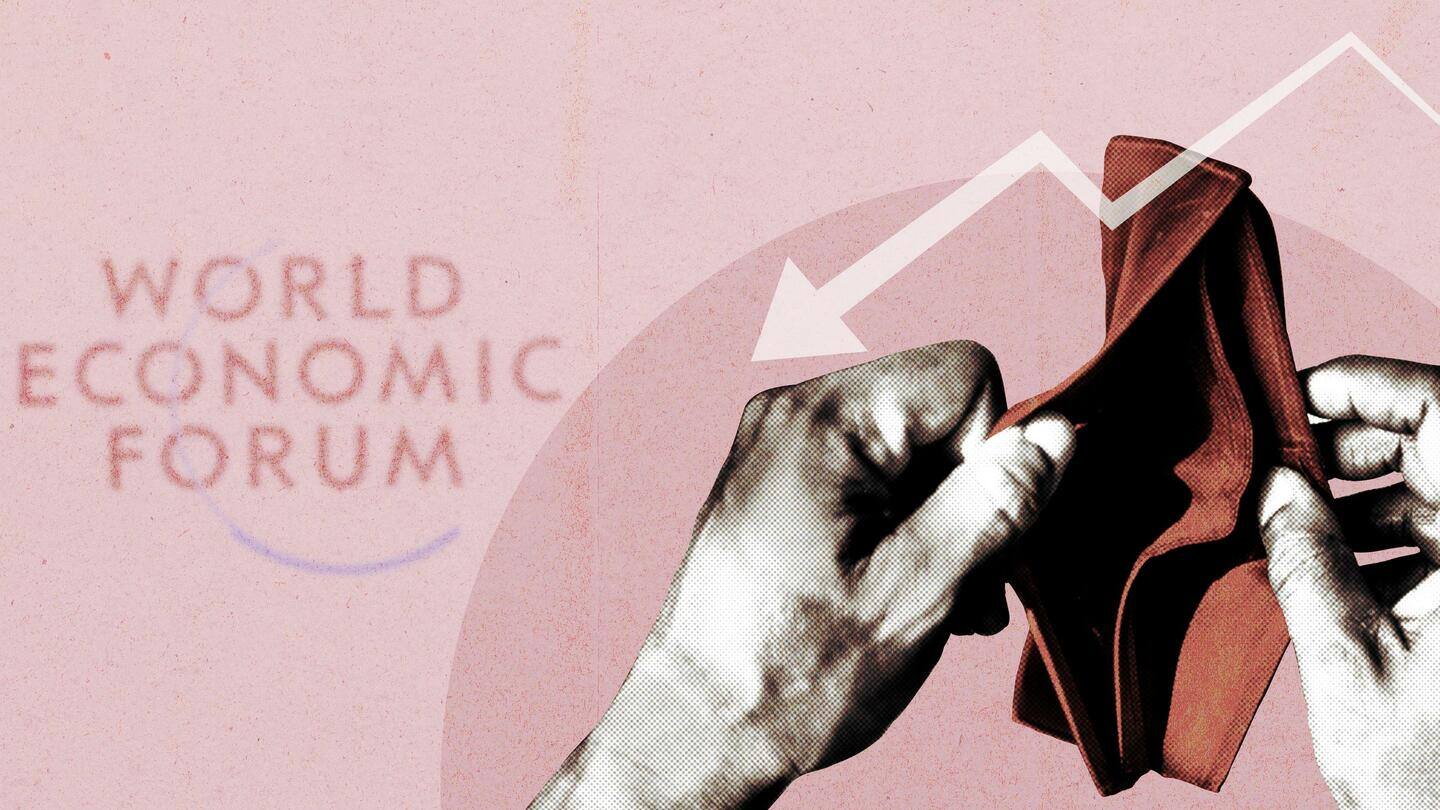
Global recession risk is high, warns World Economic Forum
What's the story
To the long list of organizations and people that expect a recession this year, we can add the World Economic Forum's (WEF) Community of Chief Economists. Almost two-thirds of the total chief economists who participated in a survey conducted by the forum believe that a recession is likely in 2023. The survey was conducted as part of the WEF Chief Economists Outlook, January 2023.
Context
Why does this story matter?
The WEF report shouldn't come as a surprise. Previously, the International Monetary Fund (IMF) also predicted around a third of the world to enter a recession in 2023. The IMF had also cut the global GDP forecast for the year to 2.7%. As the global economy still reels under geopolitical tensions and macroeconomic headwinds, the chances of a recession are not going away.
Survey
18% of chief economists consider recession extremely likely
"Global growth prospects remain anemic and global recession risk is high," the Chief Economists Outlook stated. Out of the two-thirds of economists who think that a recession is likely, 18% consider it 'extremely likely.' In the last survey conducted in September 2022, less than 9% considered recession 'extremely likely' in 2023. However, one-third of respondents expect a recession to be unlikely or extremely unlikely.
Europe and US
All economists expect weak/very weak growth in Europe
In a warning for Europe, all chief economists surveyed expect Europe to go through a phase of weak or very weak growth. The signs are not good for the US as well, with 91% expecting weak or very weak growth. In the last survey, the corresponding numbers were 86% and 64%, respectively. This shows a marked difference in the outlook.
Regions
MENA and South Asia are expected to see strong growth
Per the survey, the strongest regions this year will be the Middle East and North Africa (MENA) and South Asia. In South Asia, 70% of respondents expect moderate growth, while 15% expect strong growth. They believe that countries such as India and Bangladesh may benefit from the diversification of manufacturing supply chains as manufacturers look to move away from China.
Inflation
Chief economists expect 57% inflation in Europe
The chief economists think there will be significant variation in inflation across the world this year, ranging from 5% in China to 57% in Europe. Last year, rising inflation led to the tightening of strings by central banks. The same is expected to continue this year as well. A majority of economists expect further tightening in Europe and the US.
Business
Businesses will face more challenges this year
Most of the chief economists believe that 2023 will be a tough year for businesses. Nine out of 10 think that weak demand coupled with high borrowing costs will weigh down on business, while six out of 10 expect a rise in input costs. This, they believe, will lead to further cost cuttings by multinational businesses, resulting in more layoffs.
Optimism
The economists pointed out 3 sources of optimism
When the survey asked the economists about sources of optimism in the current economic context, three factors came up repeatedly. The strength of household balance sheets, the peaking of inflation, and the resilience of labor markets will be bright spots in the otherwise gloomy economic climate. The economists also believe that the cost-of-living crisis will be less severe by 2023 end.